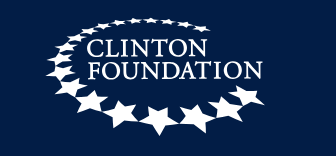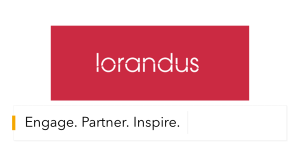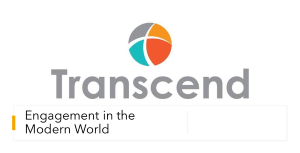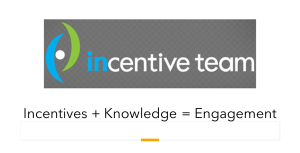Stakeholder Capitalism in the News
The topic is attracting more attention in Asia...Roundup of recent media coverage.
India Event, Malaysia Publication Address the Topic
Roundup of Recent News and Media Coverage
Click here for links to information about EEA engagement solution providers.
India Event, Malaysia Publication Address the Topic .jpeg)
India. BW Businessworld and the US India Strategic Partnership Forum recently hosted with the University of Virginia Darden School of Business an event in New Delhi on stakeholder capitalism, business ethics, and leadership challenges. Professor R. Edward Freeman headlined the event. The speakers also included Scott Beardsley, Dean of Darden and former McKinsey Senior Partner; Anand Stanley, President, Asia-Pacific, Airbus; Suresh Narayanan, Chairman and Managing Director of Nestle, India, and others.
Malaysia. In Malaysiakini, a publication in Malaysia, Ronald Benjamin writes in a recent column “that the Association for Welfare, Community, and Dialogue in Malaysia welcomes the initiative of Malaysian-based companies that have embraced Environmental, Social, and Governance (ESG) into their corporate strategy. This augurs well for the evolution of corporate Malaysia from mere shareholder capitalism to stakeholder capitalism.”
Recognizing forward-thinking ESG practices, he reports, 64 companies were awarded for their exemplary efforts in August 2024. “The ESG vision of sustainability, which preserves the planet, cares for employees and the community, and sustains the derivation of profits, will certainly pave the way to building a more equitable society in Malaysia. The various socioeconomic problems that have besieged countries around the world are rooted in corporate visions that are merely seen from the owners’ and shareholders’ interest, with the backing of governments with neo-liberal ideologies that give a free reign to conduct business without ecological and societal accountability. Such regressive visions that emerged in the 80s and continued for decades have created a national and global wealth gap between the rich and poor, that culminated in the financial crisis in 2008...The dissatisfaction among the masses was transferred to the political realm that empowered right-wing political parties in Europe, which can be felt to this day.”
Roundup of Recent News and Media Coverage 
The Observer. Reporting on the recent Clinton Global Initiative event, Arick Wierson writes: “What seems to be driving not only the sweeping thematic expansion of CGI but also the panoply of other UNGA (United Nations General Assembly) sideline events is the rise of stakeholder capitalism—a new framework in which the once-dominant principle of maximizing shareholder value in corporate governance is being replaced by a more comprehensive approach in which companies take into account the needs and interests of all stakeholders, including employees, customers, communities and the environment.”
He continues, “Even the most successful Wall Street firms now understand that financial performance alone is no longer sufficient and that investors are increasingly assessing companies through the lens of environmental, social and governance (ESG) criteria. Those that prioritize sustainability and social responsibility often enjoy higher valuations and easier access to capital. And the rise of forums engaging a wide range of stakeholders such as CGI highlights a broader definition of corporate success in today’s world. Business leaders are realizing that their influence extends well beyond the stock market, and they have a critical role in addressing the world’s most pressing challenges, and the events around UNGA provide the ideal setting to highlight what they are doing in this new emerging framework.”
Fast Company. Jim Greffet, head of sustainability strategy at Eli Lilly and Co. writes: “What some may view as controversial, we view as the way we must operate in order to make medicines. Take care of the planet, create an environment for our employees to bring their best, work to get our medicines to patients, operate ethically, and be a positive member of the communities in which we operate. We view these sustainability topics as obvious, necessary, and nonnegotiable. No matter what name you put on it, sustainability allows us to do what we do—now and for generations to come.”
KKR. KKR has closed its $4.6 billion fund focused on investing in middle-market US companies. It says that its Ascendant fund is the first middle-market private equity company “committed to supporting the implementation of employee ownership programs at every majority-owned company in which it invests.” The company says that “Since 2011, KKR has supported companies in implementing broad-based employee ownership programs throughout our portfolio, first in US industrials private equity investments and now more across sectors and regions. This strategy is based on the belief that employee engagement is a key driver in building stronger companies. So far, over 50 KKR portfolio companies have awarded billions of dollars in equity to over 110,000 non-senior management employees.”
Bloomberg. This opinion piece by Beth Kowitt, a Senior Writer at Bloomberg, traces the now unprecedented lack of trust in American business. She starts with the halcyon years of post-World War II American when for a brief time the organizational paradigm focused on enhancing returns for investors by creating value for customers, employees, supply chain and distribution partners, and communities. After tracing the forces that drove unprecedented post-war inequality in workers pay, executive pay, and shareholder returns in the 80s and 90s, and beyond, she notes that the 2019 Business Roundtable stakeholder capitalism pronouncement was just the icing on the cake of the hypocrisy. “The latest force to undermine trust in business is less dramatic, but still powerful: hypocrisy. In 2019, the Business Roundtable, an industry group made up of some of the most important executives in the US, published a much-lauded update to its definition of the purpose of a corporation.” It stated that the paramount duty of management and boards was no longer to a company’s stockholders. Instead, companies had a ‘fundamental commitment to all of our stakeholders’ — including customers, employees, and communities. As businesses embraced the doctrine, known as stakeholder capitalism, they took public stances on issues like immigration and gun control, or pledged to make changes such as cutting emissions or diversifying their workforces. Then came the war on woke. Amid a barrage of pressure from conservative forces opposing DEI (diversity, equity, inclusion), ESG (environmental, social, governance) or any other policy deemed as having a political agenda, many companies flip-flopped, going mute on social issues while quietly discarding the initiatives they’d so proudly embraced just a couple years earlier. Those who supported the stakeholder-era policies were angered, and even those who were happy to see a return to corporate neutrality couldn’t miss just how quickly companies had abandoned their promises.”
Enterprise Engagement Alliance Services
 Celebrating our 15th year, the Enterprise Engagement Alliance helps organizations enhance performance through:
Celebrating our 15th year, the Enterprise Engagement Alliance helps organizations enhance performance through:1. Information and marketing opportunities on stakeholder management and total rewards:
- ESM Weekly on stakeholder management since 2009. Click here to subscribe; click here for media kit.
- RRN Weekly on total rewards since 1996. Click here to subscribe; click here for media kit.
- EEA YouTube channel on enterprise engagement, human capital, and total rewards since 2020
 Management Academy to enhance future equity value for your organization.
Management Academy to enhance future equity value for your organization.3. Books on implementation: Enterprise Engagement for CEOs and Enterprise Engagement: The Roadmap.
4. Advisory services and research: Strategic guidance, learning and certification on stakeholder management, measurement, metrics, and corporate sustainability reporting.
5. Permission-based targeted business development to identify and build relationships with the people most likely to buy.
Contact: Bruce Bolger at TheICEE.org; 914-591-7600, ext. 230.

















